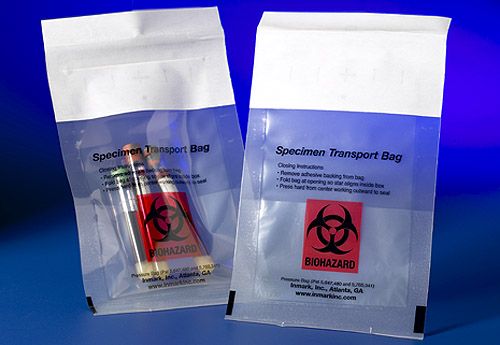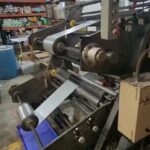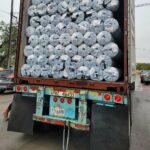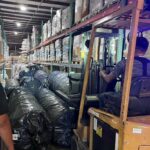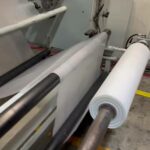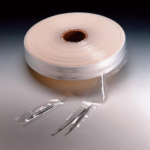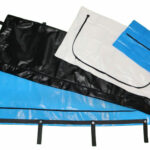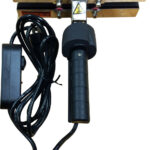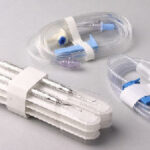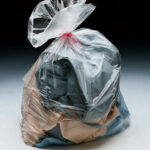Our bio hazard bags meet government packaging specifications and can be used for the storage and shipment of bio-hazardous materials, bulk specimens and cryo-boxes. We offer both low pressure bags and high pressure bags that meet internal pressure test requirements for DOT, ICAO and IATA. Perfect for clinical trials.
These polyethylene bags are tamper evident and are liquid tight up to a pressure of 95 kPa and are designed for dangerous goods. Bags contain screened BioHazard marking.
Self Sealing 95 KPA High Pressure Bags
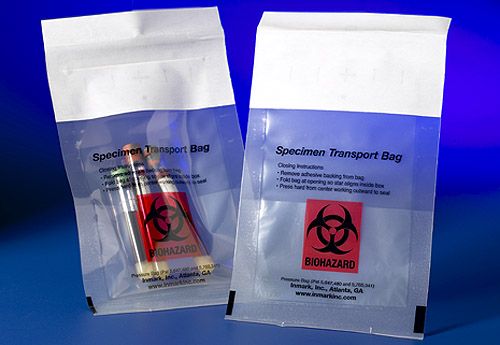
| SMALL BAG: | 7″ x 11.75″ with 3″ tape (6″ x 8″ user space) |
| MEDIUM BAG: | 11.25″ x 14.25″ OD with 3″ tape (10.25″ x 10.5″ user space) |
| LARGE BAG: | 12.25″ x 15.25″ OD with 4″ tape (11.25″ x 11.5″ user space) |
| EXTRA LARGE BAG: | 13″ x 18″ OD with 4″ tape (12″ x 14.25″ user space) |
- Meets internal pressure test requirements for DOT, ICAO and IATA
- Strip of Tape at bottom for easy sample access
- Custom Sizes Available
Heat Sealable 95 KPA Plastic Bags
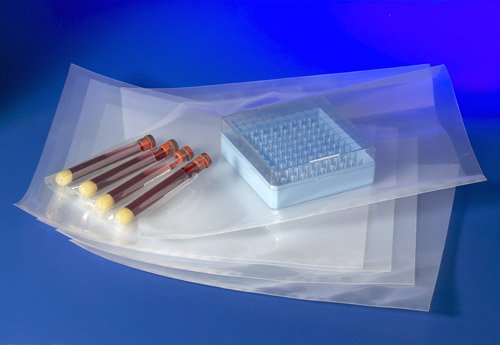
- Custom Sizes Available
- Must use tested sealer to close bag
- Can be used for bulk specimen shipments and cryo-boxes
- 500 units per case
Secondary packaging for the transport of biological substances, category B, sampled according to IATA Packaging Instruction 650.
Testing
In accordance with the IATA Dangerous Goods Regulations, primary receptacles or secondary packaging used for liquid biological substances category B must be capable of withstanding, without leakage, an internal pressure which produces a pressure differential of not less than 95 kPa in the range of -40 C to +55 C.
The test is effectuated at both temperatures on three samples. The samples are filled with air at +55 C and -40 C. An addition of air is supplied through a connection under a pressure of 95 kPa. This pressure is maintained for at least 10 min. The receptacles are verified for leakage.
Results
The samples are capable of withstanding, without leakage, an internal pressure which produces a pressure differential of not less than 95 kPa (0,95 bar, 13,8 lb/in2) in the range of -40 C to +55 C. None of the specimens were leaking after 10 min. of pressure testing with a pressure differential of 95 kPa.
